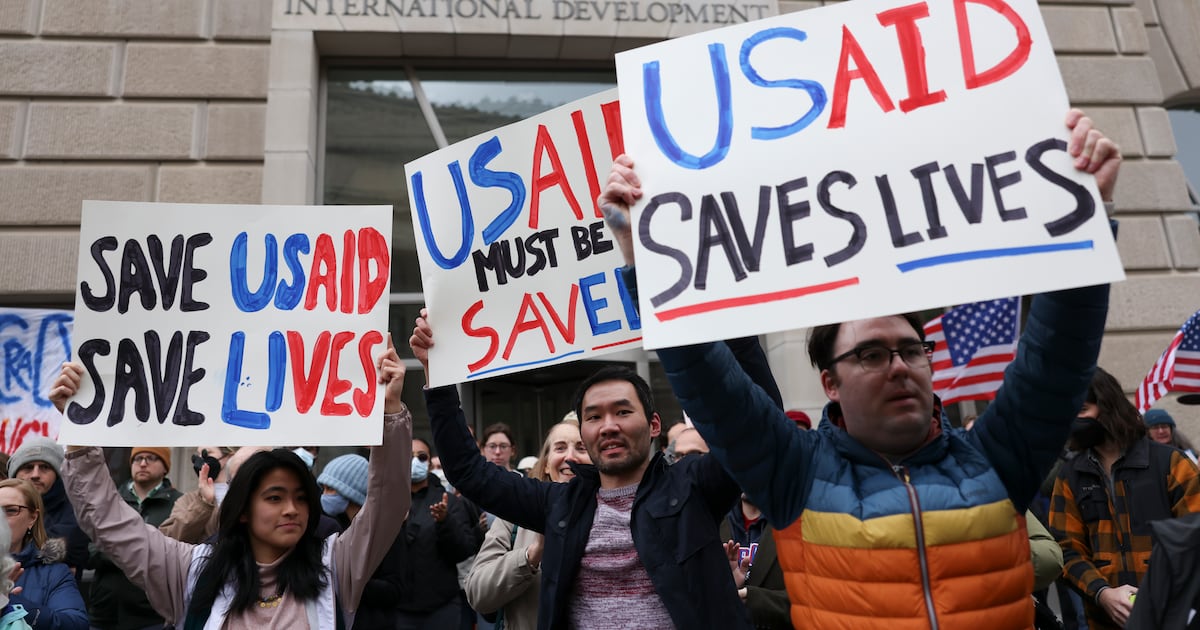World
Eilat Port Operations Halted Amid Houthi Blockade Impact

Israel’s southern port of Eilat has suspended operations as of March 2024, significantly impacted by a blockade enforced by the Yemeni Houthi movement. This blockade has resulted in heavy debts for the port, which is a crucial hub for Israeli maritime trade, accounting for approximately 5-7 percent of the nation’s shipping activities.
The port, which opened for traffic in 1957, has played a vital role in the local economy. It has attracted tourists and served a strategic function in the security of southern Israel. In the first ten months of 2023, Eilat handled 134 ships and was responsible for importing around 150,000 vehicles, primarily from China. This influx constituted nearly 50 percent of the cars entering Israel. Additionally, crude oil was imported through Eilat and transported via pipeline to Ashkelon for refining. The port also facilitated the export of potash, fertilizers, and various minerals.
The Houthi attacks on shipping vessels began in November 2023, targeting Israeli, American, and British cargo ships. These assaults included missile and drone strikes aimed at Eilat city, pressuring the Israeli government to agree to a ceasefire or to conclude ongoing hostilities in Gaza. The escalation in violence followed the attack by Hamas on October 7, 2023, which resulted in the deaths of approximately 1,200 individuals and the abduction of 150 more in southern Israel.
By December 2023, the shipping traffic through Eilat had plummeted by a staggering 85 percent. As a consequence, the port’s operations faced severe limitations, leading to the suspension of half of its staff by March 2024, although salaries have still been paid. During that year, only 16 ships docked at Eilat, and by mid-May 2024, the number had dwindled further to just six.
The closure of Eilat port could have significant repercussions for the Israeli navy, which maintains a base at the location. This base operates patrol boats that provide security for the Eilat naval shipyard. In June 2023, the Israeli government attempted to mitigate the financial crisis by issuing a $4 million (€3.4 million) emergency grant. Nevertheless, this funding proved insufficient to cover the port’s debts, which have reportedly exceeded $8.5 million.
The Eilat Port Company, now privatized, has accumulated notable debts to service providers. In a recent development, the municipality of Eilat froze $3 million in the port’s bank accounts to address tax arrears. As a result of the Houthi attacks, major shipping companies such as Maersk and Hapag-Lloyd have opted to reroute their vessels around the Cape of Good Hope, increasing shipping costs by 30-40 percent for goods destined for Mediterranean ports. This change has added an additional seven to ten days to transit times.
Furthermore, insurance premiums for vessels navigating the Red Sea have surged by 300-400 percent. Despite a reduction in Houthi attacks and the Israeli navy’s offer to protect shipping routes, vessel owners maintain that the risks associated with the Red Sea remain unacceptably high.
Michael Jansen contributes news from and analysis of the Middle East to The Irish Times.
World
Eilat Port Operations Halted Amid Yemeni-Houthi Blockade

The southern Israeli port of Eilat has ceased operations as of Sunday, primarily due to significant financial distress linked to a sharp decline in shipping activity. This downturn is attributed to the ongoing Yemeni-Houthi blockade of the Red Sea, marking a rare setback for Israel in the region. The blockade has not only impacted maritime trade but also raised concerns about national security and economic stability.
Constructed between 1952 and 1956 and opened for traffic in 1957, Eilat port has played a crucial role in Israeli maritime trade, accounting for approximately 5-7 percent of the country’s total. The port has facilitated the import of around 150,000 vehicles from China in 2023, which typically supplies up to half of Israel’s car imports. Additionally, crude oil is piped from Eilat to Ashkelon for refining, while various exports, including potash and fertilizers, have historically flowed through the port.
The situation escalated in November 2023 when Houthi forces began launching attacks on vessels associated with Israel, the United States, and the United Kingdom. These attacks included missile and drone strikes aimed at both shipping and the city of Eilat. The escalation followed the October 7, 2023 assault by Hamas, which resulted in the deaths of 1,200 individuals and the abduction of 150 in southern Israel. As a direct consequence of the conflict, Eilat’s shipping activity plummeted by 85 percent by December, and by March 2024, the port had temporarily suspended half of its staff, although salaries remained paid.
The port’s closure poses a potential risk to the Israeli navy, which operates patrol boats from its base in Eilat, providing security for the naval shipyard. In an attempt to mitigate financial challenges, the Israeli government allocated an emergency grant of $4 million (approximately €3.4 million) in June. Despite this effort, the Eilat Port Company has amassed debts exceeding $8.5 million, leading the municipality to freeze $3 million in the port’s bank accounts to address tax arrears.
Major shipping companies, including Maersk and Hapag-Lloyd, have redirected their vessels around the Cape of Good Hope, significantly increasing transportation costs by 30-40 percent for goods destined for Mediterranean ports. This rerouting has also extended transit times by approximately seven to ten days. Furthermore, insurance premiums for vessels navigating the Red Sea have skyrocketed by 300-400 percent.
While Houthi attacks have diminished recently and the Israeli navy has offered to protect ships in the area, the perception of risk remains high among shipping owners. As a result, the future of Eilat port and its contribution to Israeli trade hangs in the balance, with broader implications for the region’s economic landscape and security frameworks.
World
Brussels Airport’s Environmental Permit Annulled by Court

A recent ruling has annulled the environmental permit for Brussels Airport, following a legal challenge that raised concerns over the validity of its flight restrictions. The Flemish Council for Permit Disputes found that the permit, initially issued in March 2024, did not comply with European law. This decision supports complaints from Brussels Airlines and various stakeholders, emphasizing that the Flemish government must issue a revised permit by June 30, 2029.
The annulled permit introduced several controversial measures aimed at reducing the airport’s environmental impact. Among these were a cap of 240,000 annual flight movements by 2032 and a mandate for a 30% reduction in night-time noise by 2030. These provisions prompted 21 appeals from airlines, regional governments, and municipalities, many of which argued that the measures were overly restrictive and legally flawed.
Brussels Airlines contested the permit, asserting that the Flemish government had overlooked the EU’s required “balanced approach” when imposing flight restrictions. According to European regulations, such limitations should only be considered after exploring alternative solutions, including quieter aircraft, improved flight paths, or effective land-use planning. The airline maintained that the permit’s restrictions adversely affected its network and growth strategies.
The council agreed with Brussels Airlines, stating that the restrictions lacked a solid legal foundation and could not be justified by procedural delays. Following the court’s ruling, Dorothea von Boxberg, CEO of Brussels Airlines, expressed her support for the decision in a LinkedIn post. She stated, “We welcome the ruling on the environmental permit for Brussels Airport. We’re committed to working closely with the Flemish government to help shape a new permit that works for everyone — protecting not only the connectivity for the Belgians but also local communities and their jobs.”
With the permit now invalidated, the Flemish government must issue a compliant version by the end of June 2029. Until that time, operations at Brussels Airport will continue under the annulled authorization, with flights remaining unaffected. Arnaud Feist, CEO of Brussels Airport Company, emphasized that the airport operator would take all necessary actions to secure an updated permit before the deadline. He remarked, “We will take all necessary steps to obtain an amended permit in good time to ensure the continuity of our operations beyond 2029 and the long-term, sustainable development of the airport.”
Brussels Airport has indicated that it is actively collaborating with government and industry stakeholders to establish a framework that balances connectivity with environmental objectives. The airport has reported a significant reduction in overall noise levels, achieving a 60% decrease since 2000. Additionally, it aims to increase the proportion of quieter aircraft in its fleet, targeting that two-thirds of all flights will meet this criterion by 2032.
Located approximately 12 kilometers northeast of the Brussels city center, Brussels Airport is the principal international airport for Belgium and stands as one of the busiest airports in Europe. In the first half of the year, it welcomed over 11 million passengers, with June alone recording around 2.2 million passengers, reflecting a 4% increase compared to the same month last year.
World
Astronomer CEO Andy Byron Resigns Following Concert Incident

The CEO of the tech company Astronomer, Andy Byron, has resigned following a widely circulated video showing him sharing a kiss with the Head of Human Resources during a Coldplay concert in Boston. The company confirmed the resignation on March 15, 2024, stating that the board of directors accepted Byron’s decision.
In a statement, Astronomer emphasized its commitment to the values and culture established since its inception. “Our leaders are expected to set the standard in both conduct and accountability, and recently, that standard was not met,” the company noted. The statement underscored the importance of maintaining integrity within the organization.
Pete DeJoy, the co-founder and Chief Product Officer of Astronomer, will assume the role of interim CEO while the board begins the search for a new chief executive. This leadership transition comes at a pivotal time for the company, recognized as a pioneer in the DataOps sector, providing essential support for data teams engaged in modern analytics and production AI.
Despite the sudden change in leadership, Astronomer reassured its customers and stakeholders that its mission remains unchanged. “While awareness of our company may have changed overnight, our product and our work for our customers have not. We’re continuing to do what we do best: helping our customers with their toughest data and AI problems,” the statement concluded.
The incident has generated significant media attention, prompting discussions about corporate behavior and accountability, particularly in the tech industry. As the board of directors navigates this transition, the focus will likely remain on how Astronomer maintains its reputation and operational integrity in the coming months.
World
U.S. Opts to Destroy $9.7 Million in Contraceptives Instead of Aid

The U.S. government has decided to destroy nearly $9.7 million worth of contraceptives rather than send them to women in need abroad. This decision, confirmed by a spokesperson from the State Department, is expected to cost taxpayers approximately $167,000. The contraceptives, primarily long-acting methods such as intrauterine devices (IUDs) and birth control implants, were reportedly intended for distribution in regions including Africa.
According to two senior congressional aides, who visited a warehouse in Belgium housing the contraceptives, the destruction was anticipated to occur by the end of July 2025. The exact timing of the destruction remains unclear. Senator Jeanne Shaheen, a Democrat from New Hampshire, criticized the move, stating, “It is unacceptable that the State Department would move forward with the destruction of more than $9 million in taxpayer-funded family planning commodities purchased to support women in crisis settings, including war zones and refugee camps.” Alongside Senator Brian Schatz of Hawaii, Shaheen has introduced legislation aimed at halting the destruction of these vital resources.
The State Department’s rationale for destroying the contraceptives is rooted in the inability to sell them to “eligible buyers,” a situation influenced by U.S. laws that restrict aid to organizations providing abortion services or counselling. The spokesperson indicated that most of these contraceptives have less than 70 percent of their shelf life remaining. However, the congressional aides noted that the earliest expiration date observed on the contraceptives was not until 2027, and approximately two-thirds did not require USAID rebranding.
This decision reflects broader changes under the Trump administration, which has significantly reduced the operations of the U.S. Agency for International Development (USAID), the largest global funding agency for humanitarian aid. Following substantial program cuts, Senator Marco Rubio announced in June 2025 that USAID’s international workforce would be dissolved, with foreign assistance programs shifting to the State Department. According to a recent study published in the journal The Lancet, these funding cuts could result in more than 14 million additional deaths by 2030, with a disproportionate impact on children.
Sarah Shaw, associate director of advocacy at MSI Reproductive Choices, a global family planning organization, emphasized the dire consequences of the destruction. “If you have an unintended pregnancy and you end up having to seek unsafe abortion, it’s quite likely that you will die,” she stated. Shaw criticized the destruction of the contraceptives, describing the situation as “egregious” given the widespread need.
Despite efforts to purchase the contraceptives from the U.S. government, Shaw reported that MSI was unable to afford the full price, especially considering additional transport costs and the approaching expiration dates. The State Department did not address this specific allegation but noted that MSI provides abortions, which may have disqualified them as a buyer under existing regulations.
An internal survey conducted by MSI revealed that programs in ten countries, including the Democratic Republic of Congo and Mali, expect to face stock shortages of at least one contraceptive method within the coming month. Shaw expressed concern that the surplus contraceptives would be incinerated rather than distributed where they are badly needed.
The destruction of these contraceptives illustrates the dismantling of a once-robust system that provided essential support to women and families globally. Shaw highlighted the vital role of USAID funding in maintaining the supply chain for family planning aid, noting that without it, many logistical operations are now stalled. In Mali, for instance, USAID funding was used for gas to transport contraceptives, leaving many vehicles unable to operate and causing delays in distribution.
The situation is not isolated to contraceptives. Reports indicate that nearly 500 metric tons of emergency food aid are set to expire and be destroyed instead of feeding approximately 1.5 million children in Afghanistan and Pakistan. Additionally, almost 800,000 Mpox vaccines intended for Africa have also become unusable due to expiration concerns.
The impending cuts to foreign aid are expected to deepen, with Congress recently passing a bill to rescind nearly $8 billion earmarked for international assistance. Shaw poignantly summarized the broader implications: “It’s not just about an empty shelf. It’s about unfulfilled potential. It’s about a girl having to drop out of school. It’s about someone having to seek an unsafe abortion and risking their lives.”
-

 World5 days ago
World5 days agoGaza Aid Distribution Tragedy: 20 Killed Amid Ongoing Violence
-

 World5 days ago
World5 days agoHawaii Commemorates 80 Years Since Hiroshima Bombing with Ceremony
-

 World5 days ago
World5 days agoCouple Convicted of Murdering Two-Year-Old Grandson in Wales
-

 Top Stories6 days ago
Top Stories6 days agoClashes Erupt Between Far-Right Groups and Migrants in Spain
-

 Top Stories5 days ago
Top Stories5 days agoHistoric Dalkey Pub The Queens Reopens Under New Management
-

 Top Stories4 days ago
Top Stories4 days agoFianna Fáil TDs Urgently Consider Maire Geoghegan-Quinn for Presidency
-

 Business6 days ago
Business6 days agoSunshine 106.8 Boosts Irish Music After Regulator’s Request
-

 World4 days ago
World4 days agoEnter to Win an APT Travelmarvel Cruise with Photo Contest
-

 World6 days ago
World6 days agoTrump Defends FBI Deputy Director Amid Epstein Files Controversy
-

 World6 days ago
World6 days agoAristocrat Constance Marten and Partner Convicted of Infant Murder
-

 Politics5 days ago
Politics5 days agoTragic Crowd Surge at Gaza Aid Center Claims 20 Lives
-

 World4 days ago
World4 days agoTrump Considers Firing Fed Chair Powell Amid Interest Rate Dispute









